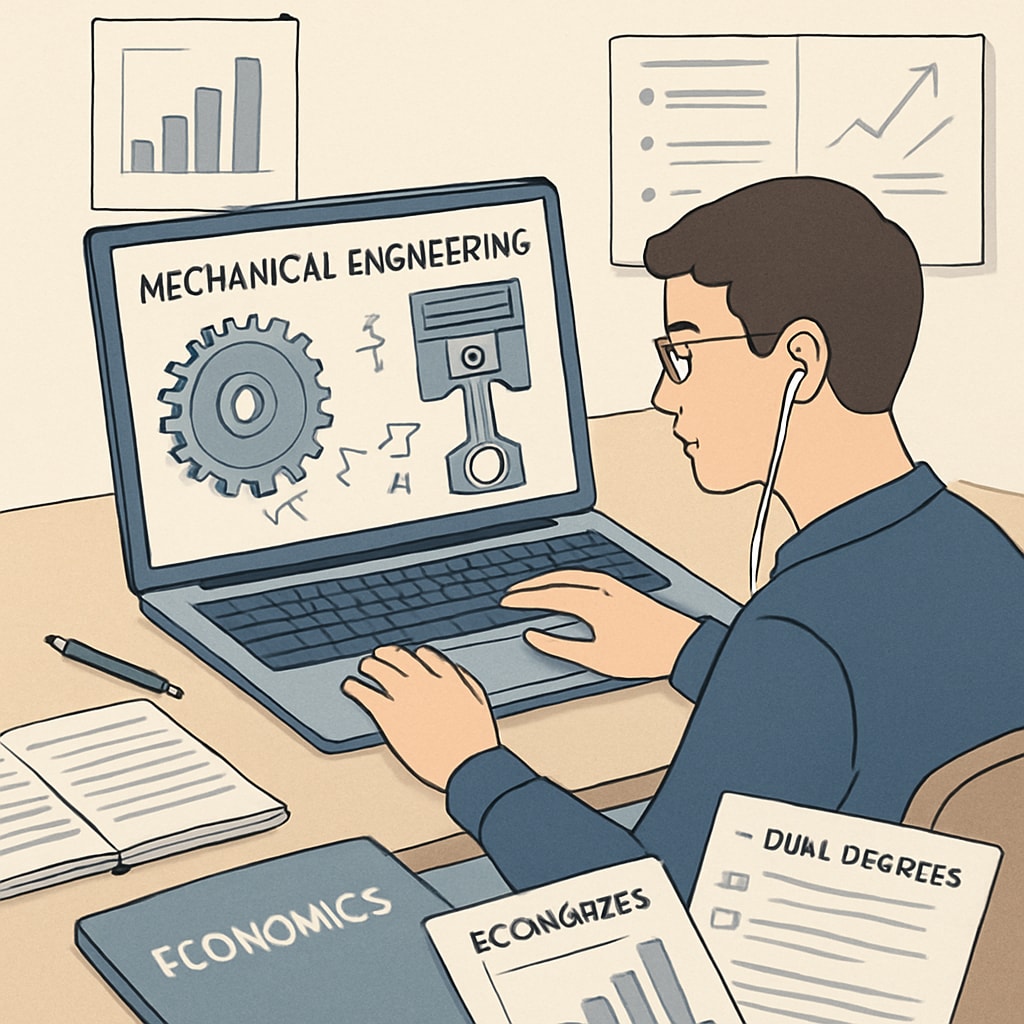Pursuing a dual degree in mechanical engineering and another field is a strategic choice for students seeking to enhance their career development. With the rise of online degrees and the increasing demand for multidisciplinary professionals, combining mechanical engineering with a complementary discipline can open doors to new opportunities. This article explores the value and challenges of such a decision, offering insights into how it can shape a successful professional journey.
The Value of a Dual Degree in Mechanical Engineering
Mechanical engineering is a versatile and in-demand field, forming the backbone of industries like manufacturing, energy, and automotive. However, the modern job market increasingly rewards professionals who bring diverse skill sets to the table. A dual degree allows students to expand their expertise, making them more competitive and future-ready.
For example, pairing mechanical engineering with disciplines like business, computer science, or economics broadens career prospects. Business knowledge can help engineers transition into management roles, while computer science expertise is invaluable in robotics, automation, and data analysis. Economics, on the other hand, provides insights into market dynamics, crucial for entrepreneurship.

Popular Fields to Pair with Mechanical Engineering
Choosing the right complementary field depends on your career goals. Below are some popular options:
- Business Administration: Ideal for aspiring managers or entrepreneurs, this combination equips engineers with leadership and financial skills.
- Computer Science: A perfect match for those interested in AI, machine learning, or software development within engineering contexts.
- Physics: For students passionate about research, this pairing deepens their understanding of the fundamental principles driving mechanical systems.
- Economics: A great choice for those aiming to work in policy-making or energy markets, where economic analysis is critical.
Each of these fields complements mechanical engineering in unique ways, providing a solid foundation for diverse career paths.
Balancing Academics and Career Goals
While the benefits are clear, pursuing a dual degree comes with challenges. Time management and workload are two major concerns. However, with careful planning, students can balance their studies and long-term goals effectively. Here are a few strategies:
- Leverage Online Degrees: Online programs offer flexibility, allowing students to manage their time more efficiently. For instance, platforms like Coursera or edX provide accessible options for earning additional credentials.
- Set Clear Priorities: Focus on courses that align with your career interests. Avoid spreading yourself too thin by enrolling in unrelated electives.
- Seek Mentorship: Guidance from advisors or professionals in your chosen fields can help you navigate academic and career decisions.
In addition, many universities offer accelerated dual-degree programs, enabling students to complete their studies in less time without compromising the quality of education.

The Long-Term Impact on Career Development
A dual degree significantly enhances employability. Employers value candidates who demonstrate both technical expertise and cross-disciplinary knowledge. For instance, engineers with business acumen are better equipped to lead teams and manage projects. Similarly, those proficient in computer science can contribute to cutting-edge innovations in fields like autonomous vehicles or smart manufacturing.
Moreover, dual-degree holders often have an edge in entrepreneurial ventures. Combining engineering skills with market analysis or financial planning creates a solid foundation for launching startups. For example, many successful tech entrepreneurs have backgrounds in both engineering and business.
According to a report by the U.S. Bureau of Labor Statistics, the demand for mechanical engineers is expected to grow steadily, with specialization and interdisciplinary skills playing a crucial role in career advancement.
Conclusion
In conclusion, pursuing a dual degree in mechanical engineering and another discipline is a strategic move for students aiming to excel in the modern workforce. While it requires commitment and careful planning, the long-term benefits in terms of career growth, employability, and entrepreneurial opportunities are well worth the effort. By leveraging online degree options, setting clear priorities, and seeking mentorship, students can successfully navigate the challenges and unlock their full potential.
As industries continue to evolve, the demand for versatile professionals will only increase. A dual degree equips mechanical engineers with the tools they need to thrive in a competitive and ever-changing job market.
Readability guidance: This article uses short paragraphs and lists to improve readability. It avoids excessive technical jargon and maintains a balance between professional insights and practical advice.


